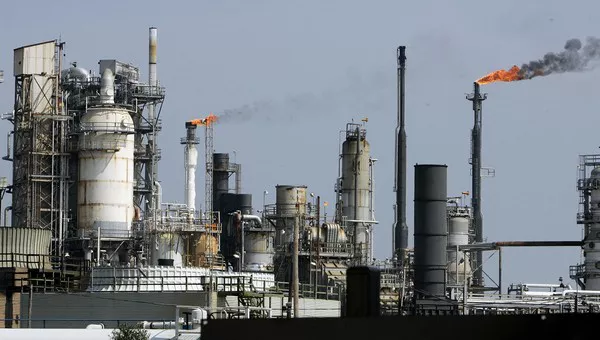Africa’s largest oil refinery has commenced production in Nigeria, marking a significant development for the region’s refining capacity. The $19 billion facility, owned by Nigerian industrialist Aliko Dangote, has the capacity to produce 650,000 barrels per day and has begun producing diesel and aviation fuel, according to the Dangote Petroleum Refinery company. Nigeria, one of Africa’s major oil producers, has long relied on imports for refined petroleum products due to the underperformance of its state-run refineries. The Dangote refinery aims to address this issue and contribute to Nigeria’s self-reliance in domestic refining capacity.
Situated on the outskirts of Lagos, the refinery is deemed the world’s largest single-train refinery. Aliko Dangote, Africa’s richest man, views the project as a game-changer for Nigeria. The facility, coupled with a fertilizer plant, is expected to meet 100% of Nigeria’s gasoline, diesel, kerosene, and aviation jet fuel needs at full production capacity. Moreover, it plans to export at least 40% of the oil products it produces.
While some experts caution that the Dangote refinery is not a complete solution to Nigeria’s energy challenges, they acknowledge its potential to revitalize the sector. Analyst Olufola Wusu notes that the refinery could help transition Nigeria from a major importer of refined petroleum products to achieving self-reliance in domestic refining.
The facility received approximately 6 million barrels of crude from Nigeria’s state oil firm, NNPC Limited, to initiate operations. However, it may take several months for the refinery to reach its full production capacity. Citizens are hopeful that the new plant will contribute to lowering consumer gas prices, which have tripled over the past year after the government halted longstanding subsidies.
Analysts emphasize that the impact on prices will hinge on various factors, including industry trends, crude costs, government interventions like subsidies, and the local currency’s exchange rate against the dollar. Despite these considerations, the Dangote refinery marks a significant step towards transforming Nigeria’s energy landscape and reducing its dependence on imported refined petroleum products.



























